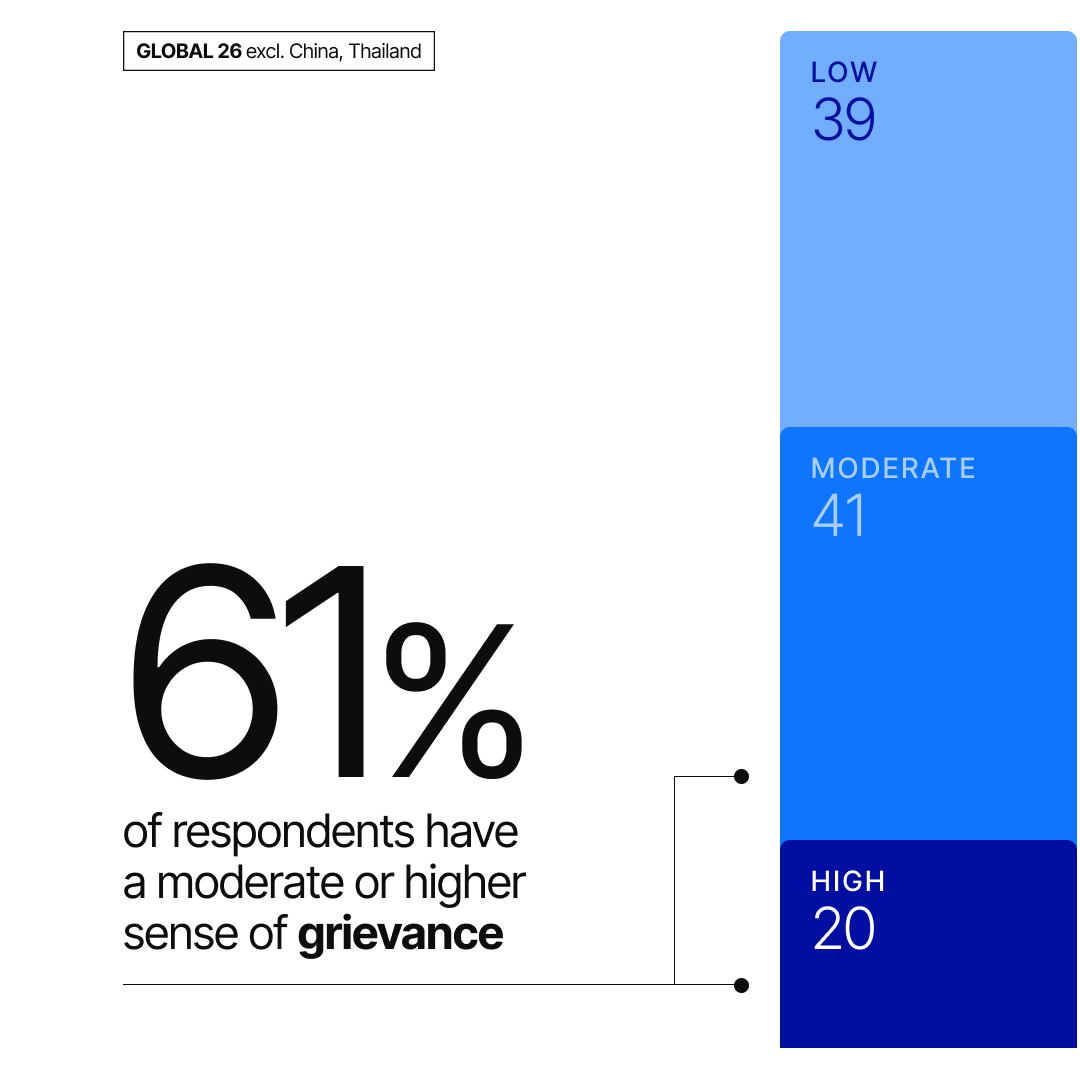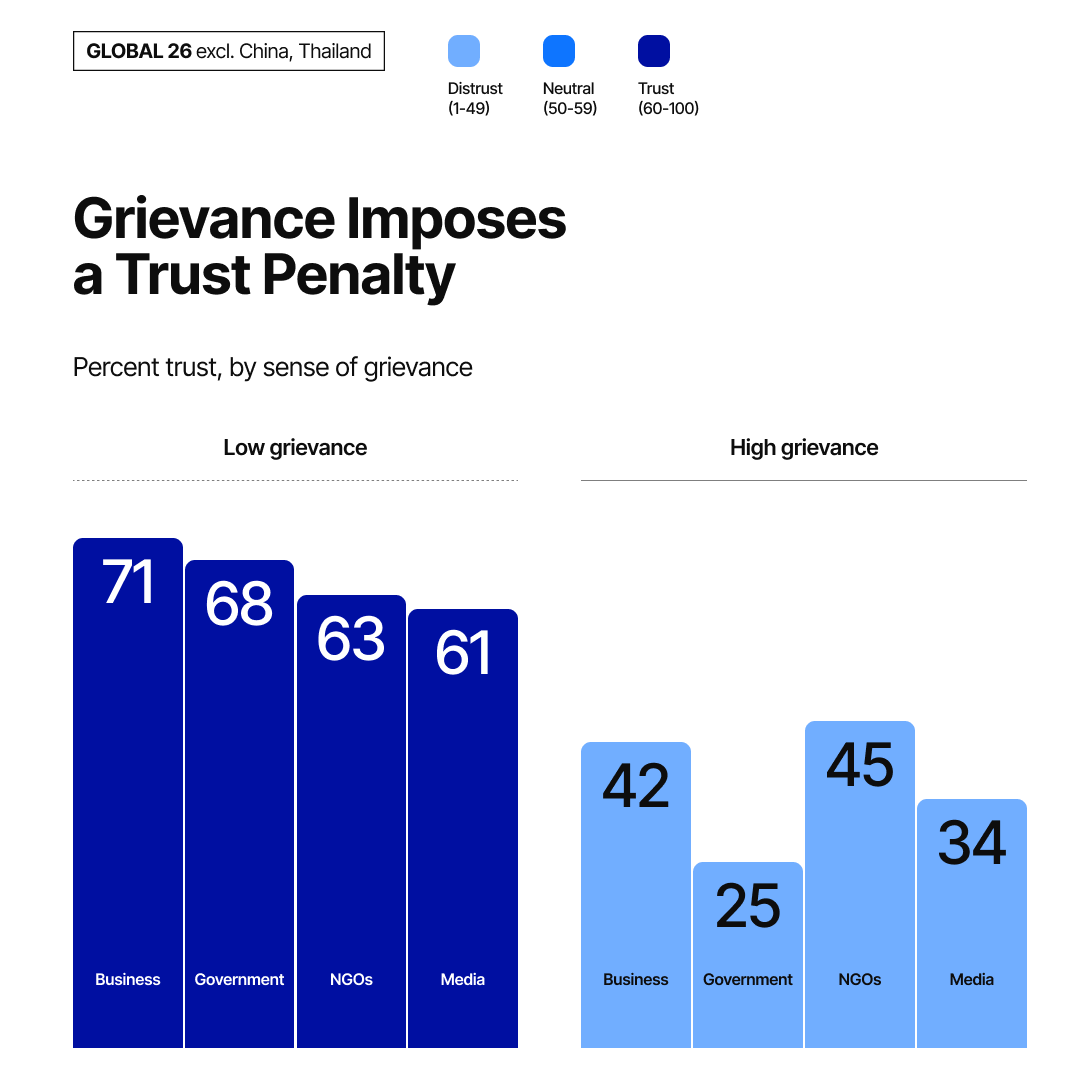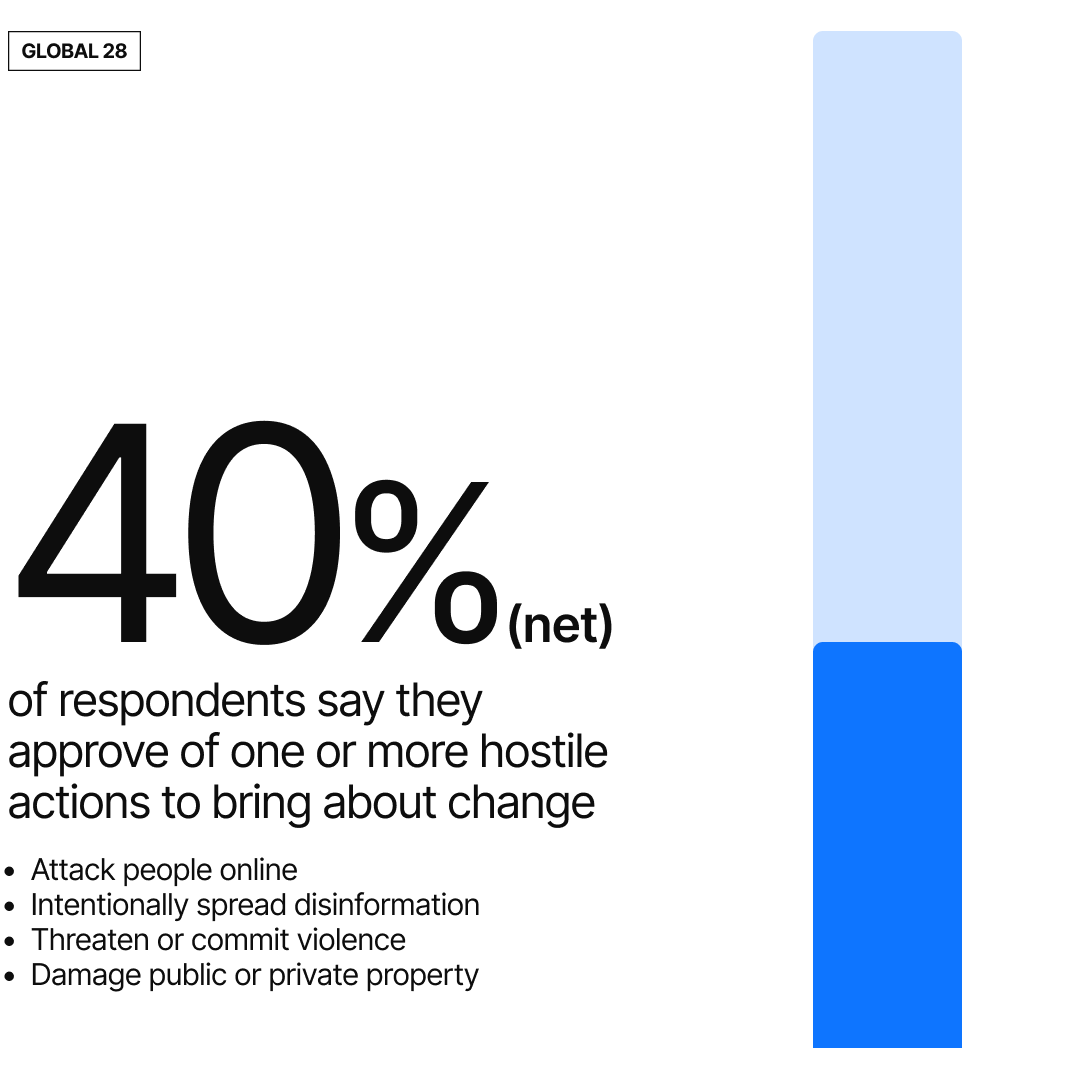.
Crisis of grievance puts pressure on trust
The 25th anniversary edition of the ľęņ÷ ”∆Ķ Trust Barometer has revealed a profound shift to acceptance of aggressive action, with political polarization and deepening fears giving rise to a widespread sense of grievance.
Majority hold grievances against government, business, and the rich
Sixty-one percent globally have a moderate or high sense of grievance, which is defined by a belief that government and business make their lives harder and serve narrow interests, and wealthy people benefit unfairly from the system.


Widespread grievance is eroding trust across the board
Those with a high sense of grievance distrust all four institutions (business, government, media, and NGOs).
Hostile activism is seen as a legitimate tool to drive change
To bring about change, 4 in 10 would approve of one or more of the following forms of hostile activism: attacking people online, intentionally spreading disinformation, threatening or committing violence, damaging public or private property. This sentiment is most prevalent among respondents ages 18-34 (53 percent approve of at least one).

Explore the findings


Restoring trust and building optimism
1. Grievances must be addressedThe institutional failures of the last 25 years have produced grievances around the world, stifling growth and innovation in turn. To lead through this crisis, understand the economic realities of your stakeholders, champion shared interests, and create opportunities for optimism. |
2. Business has a license to actThose with a higher sense of grievance are more likely to believe that business is not doing enough to address societal issues. To navigate these expectations, understand where you have obligations, act on behalf of your stakeholders, and advocate for your organization. |
3. Business can’t act aloneBusiness, government, media, and NGOs must work together to address the root causes of grievance and enable trust, growth, and prosperity. Invest in local communities, quality information, and job skills. Deliver results that benefit everyone fairly. |
4. With trust, optimism eclipses grievanceWhen institutions can’t be trusted to do what is right, grievances fester and outlooks darken. To dissipate grievance and increase optimism, prioritize and rebuild trust across your organization and local communities. |
Explore the findings
.
Top Findings
01
Fear of discrimination surges
‚ü≤
01
Nearly two thirds of respondents worry about experiencing prejudice, discrimination, or racism ‚Äď up 10 points in the last year and with significant increases across countries and demographics.
02
Majority lack optimism for the next generation
‚ü≤
02
Only 36 percent of respondents believe that things will be better for the next generation. In developed countries, just one in five see a better future.
03
High sense of grievance puts pressure on business
‚ü≤
03
Those with a high sense of grievance see business as 81 points less ethical and 37 points less competent than those with a low sense of grievance, and they believe business is not doing enough to address key societal issues.
.
Insights
Global Launch Event
The global launch event for the 2025 ľęņ÷ ”∆Ķ Trust Barometer took place during the World Economic Forum in Davos, Switzerland. Richard ľęņ÷ ”∆Ķ, CEO, ľęņ÷ ”∆Ķ, presented this year‚Äôs findings, followed by a panel discussion moderated by Alyson Shontell, Editor in Chief and Chief Content Officer, Fortune; and featuring Brad Smith, Vice Chair and President, Microsoft; Takeshi Niinami, President and CEO, Suntory Holdings Ltd.; Nikki Haley, Vice Chair, ľęņ÷ ”∆Ķ Public & Government Affairs; Gillian Tett, Provost, King's College, Cambridge & Columnist, Financial Times; Dolf van den Brink, CEO and Chairman, Heineken N.V.
Subscribe for our research and insights directly to your inbox:
Methodology: The 2025 ľęņ÷ ”∆Ķ Trust Barometer is the firm‚Äôs 25th annual Trust survey. The research was produced by the ľęņ÷ ”∆Ķ Trust Institute and consists of 30-minute online interviews conducted between October 25 and November 16, 2024. Learn more >
33,000 | 28 | ¬Ī1,150 |
This crisis of grievance must be solved
Learn how your company can make a difference.









